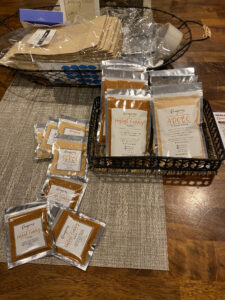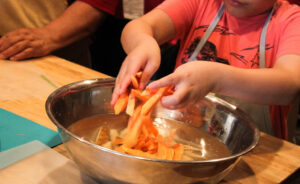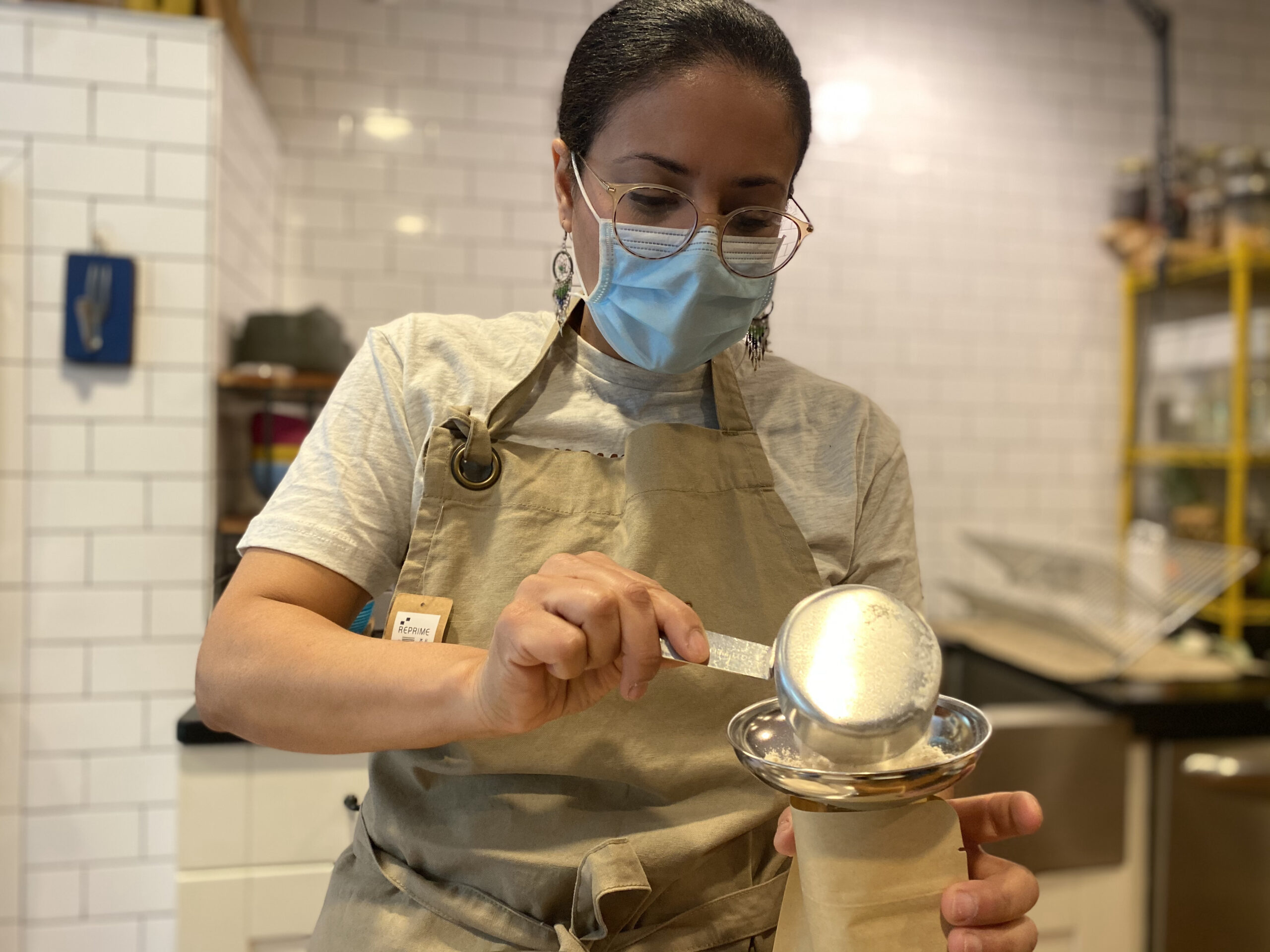Cielo Delgado used to put Goya’s Adobo seasoning blend in all her food just like her family always did. Her Puerto Rican mother was a die hard Goya fan, loyal to the brand’s many products like canned beans and sauces. So when her daughter suggested she try something new, Delgado’s mother raised an eyebrow.
“I came out and I was just like I am not buying anything Goya from here on in,” says Delgado. “When I went to my mother’s house, I said you already have these products, I’m not telling you to get rid of them but when you come to my house you ain’t gonna find anything Goya.”
Delgado’s abrupt break from this Latinx tradition followed the company getting wrapped up in controversy last year when CEO Robert Unaune was pictured with President Trump and began to sing his praises.
“Goya is a major brand whose customers are largely made up of a race of people that the president likes to talk bad about,” says Delgado.
What started as a boycott over those comments became a reimagining of beloved Goya necessities, like the company’s signature Adobo seasoning blend, and that included looking at products that offered healthier and tastier versions of traditional favorites.
Roseanne Placencia harnessed that outrage and seized the opportunity to educate her community about what’s really in their favorite foods and how it affects their health. Placencia had long been making her own Adobo blend, free of add-ins like MSG and tricalcium phosphate, present in Goya’s version, which help to maintain shelf life. She began selling her product both locally and online last year through her company Cumpanis.

“The Adobo is not the problem,” says Placencia. “The new commercialized Adobo that is on the shelf for a year is the problem.”
A South Bronx native, Placencia felt a lot of shame in her classic Dominican foods growing up. She thought the meals of her culture weren’t as nutritious as the ones marketed in health spaces. She figured it was either “keto or kale” if she wanted to achieve overall wellness.
It took a deep understanding and appreciation for her ancestral roots for Placencia to realize that the recipes weren’t the problem, it was the processed ingredients that went into them.
“Our foods are healthy foods,” says Placencia. “Our food in our countries are often void of pesticides, chemicals and additives. So I really preach around hanging onto your cultural identity when it comes to food but really shedding the newer foods.”
When Placenta isn’t blending tasty mixes, she’s teaching people how to make their meals healthier during cooking workshops at her Mott Haven kitchen space. The goal, she says, is not to tell people to eat certain foods in favor of others, but to tweak the recipes they already make to be healthier. That might mean swapping their usual vegetables for organic ones or using one type of cooking oil over another. But Placencia also understands that these options aren’t always accessible or affordable, especially in The Bronx.
“We empower people to make the best decision with what they have in their neighborhoods. So maybe you can’t get the pasture-raised chicken right from the farmer, but you can find organic chicken in your supermarket” says Placencia.
She urges her clients, once armed with knowledge about how to read food labels and the impact of food on health, to feel more confident being their own advocates around food and requesting certain foods or ingredients be offered at their local supermarkets. To bring fresh food to her community, she has even started her own South Bronx farmer’s market.
“The Bronx is a food desert which means that there is not enough food in the neighborhood,” says Sandra Arevalo, registered dietician and director of community and patient education at Montefiore. “Most of the food options in the Bronx are from bodegas. There are not a lot of big supermarkets. In the bodegas, you can get food for lower prices, but the problem with that is the food is also lower quality.”
Arevalo also recognizes in her own work how important cultural relevance is to changing habits. As a Latina woman, she understands certain cooking habits or essential ingredients for dishes and, like Placencia, encourages easy swaps with what’s available and easiest.
“There are traditions within different cultures and you just have to try to make them healthier instead of changing them,” says Arevalo. “When you start trying to change things, that’s when the problem comes in. People are unfamiliar with the foods, they’re unfamiliar with the recipes, they may not like the taste.”
For Delgado, getting her mother on board with a new Adobo mix was her biggest challenge. After completely converting to Cumpanis’ seasoning, Delgado had to convince her mother that Placencia’s version of her mother’s cherished flavor blend was legit. She decided to make a pollo guisado recipe that Placencia included in her Adobo order for her mom. At first skeptical, Delgado’s mom was surprised at the results.
“There’s this saying that goes ‘when you cook something good, you could get married,’” says Delgado. “My mom was like ‘you can get married.’”
Both Delgado and her mom are now fans of Cumpanis’ seasoning as well as Delgado’s young daughter who frequently shows off the blend in her pretend cooking show.

Cumpanis Adobo mix costs $12, quadruple the price of Goya’s. But Placencia is hopeful people will see the value of the higher price tag and that Cumpanis will grow to a point where she can lower her price as more people in her local community and beyond see the impact of the way food impacts health.
In the meantime, she’s hanging onto the small wins, like her cousin’s feedback that her Adobo is the only one that doesn’t give her hives.
Health effects aside, Placencia deeply appreciates the way food connects people.
“These connections are so important and need to be made because we’re so disconnected from food and the power of food,” says Placencia. “This is why I do this work. There’s a perspective of health and wellness but it’s also about the beautiful moments we’ve had with families around the table making new connections.”

